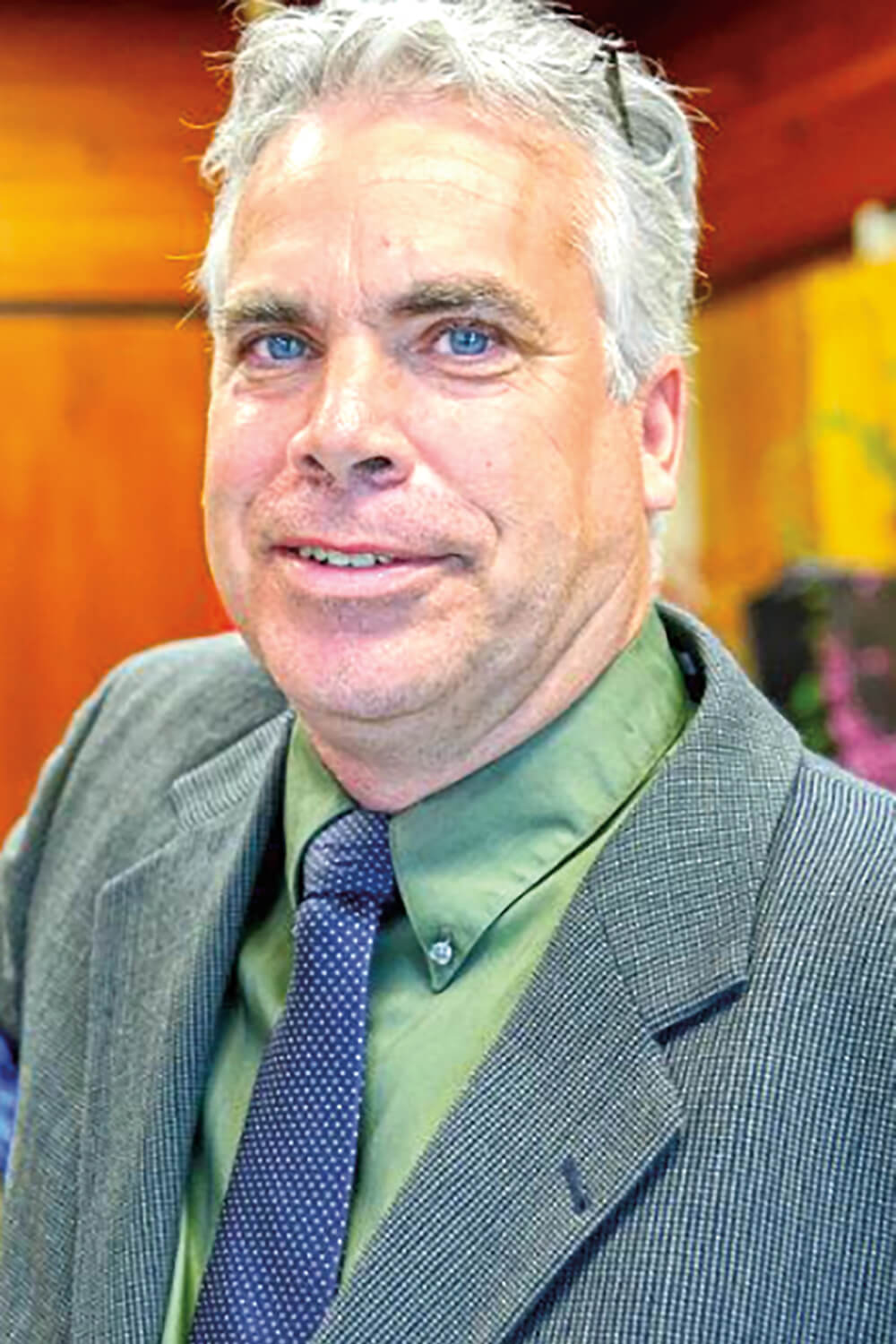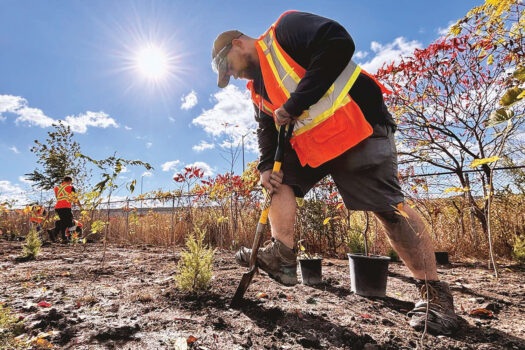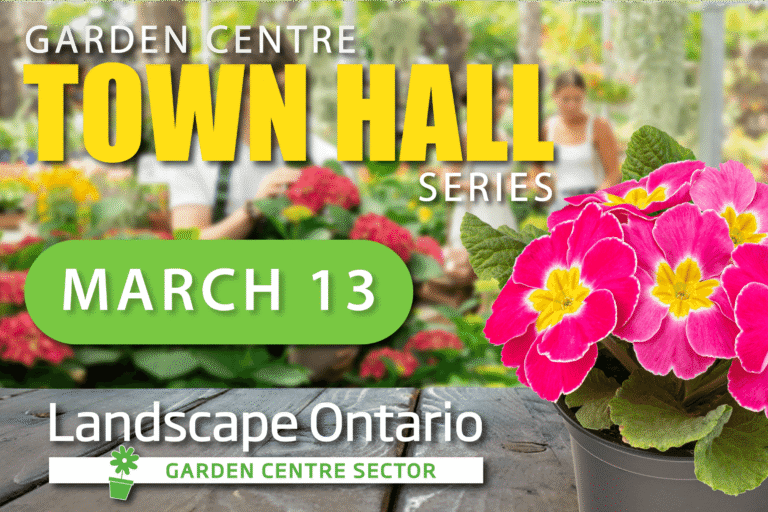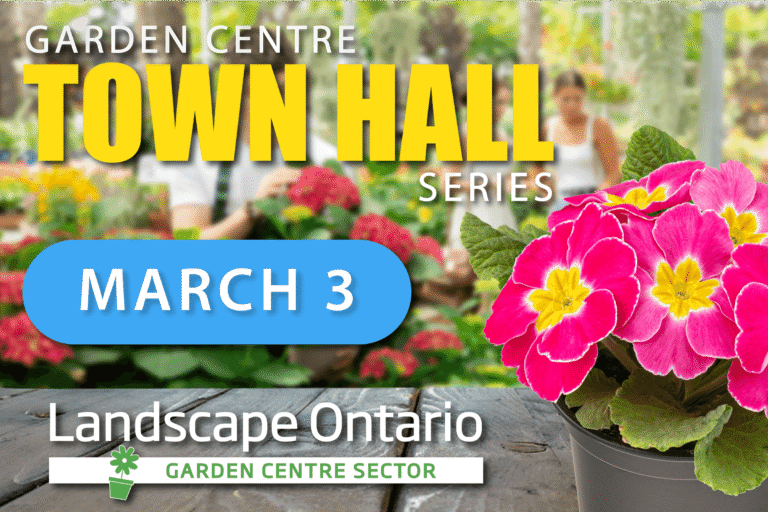Darrell Bley is instructor and curator of the woody plant collections at the Niagara Parks Botanical Gardens and School of Horticulture in Niagara Falls, Ont. An educator for more than 35 years, Bley also oversees the school’s internship program, and was an instructor at Niagara College until 2010.
Before becoming an educator, Bley owned his own landscaping and tropical plants companies, and worked as a manager for a landscape supply company.
For you, what was the draw to the horticulture profession?
I’ve always enjoyed working with plants. When you’re working with plants, it’s a very rewarding opportunity to look back on something and see a transformation and see a change and see what you’ve created. I think that is really what I found to be a rewarding opportunity.
How did you make the transition into the education side of horticulture?
When I had my companies, I was asked to be on the advisory board for the horticulture program at Niagara College. In the second year of sitting on that advisory board, I was asked if I was interested in teaching a soils course. That was my first step into the teaching realm. From that point forward, I started teaching. For 25 years I taught the Continued Education Program and all the credit courses involved in that. That was a good way to hone my teaching skills. After working for six years for a landscape company, I became a full-time position here at Niagara Parks, and I transitioned into a full-time instructor very quickly after that. I was teaching full-time here and in the evenings at Niagara College. There’s been a lot of teaching going on.
What is one of the most rewarding aspects of your career as an educator?
I would have to look at four things. The top aspect is watching student development, and seeing them grow over the three years they go to school here. It’s really rewarding to see where they then proceed to in the workplace. I keep in touch with a lot of students and it’s nice to see their career path develop. The second thing is those relationships with students during school, but also as they move forward in their careers. The third thing is that I’m always learning something. Personal education and growth is always interesting. It’s alway very fulfilling.
And the last thing is that in this job I have a lot of opportunities to travel. Those are wonderful memories and great learning opportunities.
You’re known as a mentor to many of your students, what aspect of your teaching style do you think generates this enthusiasm?
I always recognized a really good teacher and I looked at their attributes and what made them a good teacher. When I started teaching, I put a lot of thought into that and the attributes of those individuals.
Are there any new factors in the industry that have encouraged you to change how you educate your students?
There’s always new techniques that are coming forward, there’s always new ideas and there’s really excellent researchers that put out a lot of literature. It’s important to stay current and read those articles and read those textbooks. You need to attend lots of conferences.
Nowadays with the internet there’s great ways to learn new information. That really allows you to change content and update content. The more often you teach a course, you realize how to provide that information to make it more understandable and more applicable. We do a lot of field trips and we do a lot of study tours, which allows you to speak with key people, and we can learn a lot from them. We have a lot of good connections in the industry.
What advice would you offer others who are considering becoming a teacher?
As a teacher, I think you need to have passion. It’s a full-time commitment, and as an instructor you have to be constantly learning yourself. I try to take the time to connect with each student individually as well as collectively, but then really strongly individually. You need to be able to change your teaching style, it depends on the audience or student in front of you. What I’ve learned is that students learn differently. I think you need to be patient, and very importantly, you need to be consistent and honest.
What’s worked for me is you need to push the learning envelope. You need to demand a lot from the students. If you push in the right direction, you can increase what students can learn.
Is there one lesson in particular you hope your students pay close attention to?
There’s a couple of things. One thing I always encourage students to do is if they’re asked a question, and they don’t know the answer, they need to acknowledge they don’t know the answer. Then, they need to look up the details and then share that information.
I always encourage students to never stop learning. They need to keep up with qualifications and certifications during and after school. They need to put those notches in their belt. The third thing I would encourage students to do is to constantly network and reach out. I’m a firm believer that if you want a particular door to open, you need to knock on that door.









